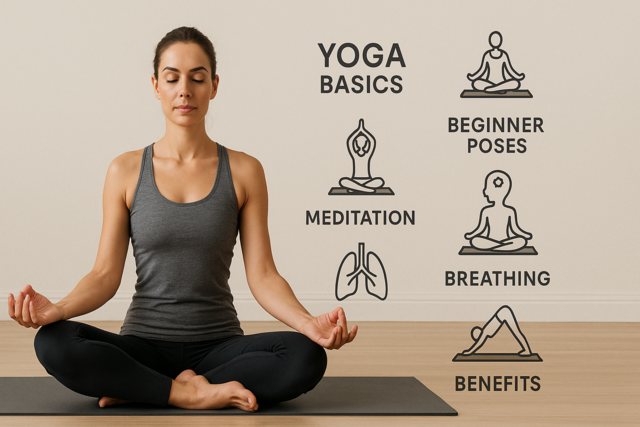Mindfulness
-
Ancient Roots
-
What is Mindfulness
-
Jon Kabat-Zinn
Mindfulness is exactly what it sounds like -- being "mindful," or paying attention to what you are doing at any given moment. It is said that stress occurs 100 percent either in the past or in the future, never in the present moment. Therefore, being "in the moment" allows your body to rest, for there is no stress there.
Let's stop and consider this for a moment. Stress, our stress, comes from thinking about things in the past that we cannot change, but wish we could. How many of us are held back by some memory or other that seemed to define part of who we are today, and we cannot seem to get beyond that memory.
Our minds also look to future events, worrying about things that have not yet happened. We worry about our jobs, our ability to pay bills, our future, our kids, our retirement, etc.
Mindfulness is purposefully focusing on the present moment and nothing else -- whether we're eating breakfast and having morning coffee by a sunlit window, or we're packing for an upcoming trip. Keeping our mind on the very thing that we are doing helps us to slow down and be in the present moment.
The second portion of focusing on the present moment is to do so without judgment.
This will be the most difficult part of practicing mindfulness for most people, because we are constantly critiquing and judging our actions, thoughts and behaviors, often trying to see how we appear through the eyes of others.
Let's evaluate your stress and how it might affect you. Go through the following chart and see if you have any symptoms in any of the three columns.
|
EFFECTS OF STRESS |
||
|
On Your Body: |
On Your Thoughts/Feelings |
On Your Behavior |
|
|
|
While it is possible that many of these symptoms can indicate serious illness, many times stress is the cause. Of the above lists of symptoms, how many do you feel might be impacting your life? If stress is the root cause of most of your symptoms, then mindfulness can have a profound impact, allowing you to live a much more peaceful and enjoyable life.
Low stress has long been associated with a healthier and happier life. As stress increases in our life, some of the first signs include headache, indigestion, mood swings from feeling low, to unexpected bouts of anger. Moderate levels of stress have serious health consequences and high levels of stress are even worse. Incorporating mindfulness into your daily routine helps you to become aware of your stress.
Because the effects of stress creep up on us, we are often taken unaware when one of its more serious consequences erupts. When we can handle stress, we actually don't experience stress. We only experience stress when our ability to handle it is exceeded.
The mindful approach to stress teaches you skills to respond to stress in a positive way, first by noticing it, then by determining how to manage it. By being mindful, we notice our emotions as they occur, and even allow ourselves to have the feelings of emotions that the stressor causes. We may even be surprised to realize that we are feeling afraid or angry or threatened by a situation. Usually when there is a strong emotional response to something, we need to notice it, pay attention to what it really means.
By being mindful, in the present moment, we can recognize and name what is happening to us at any given moment. By noticing these emotional responses, we then have a choice in how to behave. This is a way to break habitual patterns in how we traditionally respond, which is usually some extreme form of the fight-or-flight response.
Ancient Roots
Mindfulness has its roots in Buddhism of the Far East, but it is not a religious practice. Mindfulness, as a way of living, helps us to shift our thoughts away from the constant chaos that is in our mind to an appreciation of the moment.
In the Far East, people tried to understand the nature of reality by observing and contemplating it. In the Himalayas, India, and China various philosophical traditions arose that have great meaning for people today. Some of those questions they pondered were about the state of health and the nature of human suffering.
Yoga and Buddhism are closely related practices that developed theories of the mind and developed meditative practices that are as effective today as they were 2500 years ago. Siddhartha Gautama lived in northern India 500 BCE, born to an influential family. His father shielded Siddhartha from all human suffering because he wanted his son to become a great king rather than a holy man.
Siddhartha managed to meet an old man and learned that everyone will eventually become old and frail. Turning his back on his former life and his father's plans, Siddhartha spent six years, a wandering homeless man, begging, enduring extreme hunger and walking great distances. All this left him worn out and near death.
At this point Siddhartha considered the two varying lives he'd led, the first of great abundance and the second of great deprivation. He then brought to mind a moment as a child when he watched his father lead the ceremony marking the beginning of the growing season. During this peaceful moment, Siddhartha entered a state of bliss and he knew that memory was the key to what he had been seeking. He developed the Buddhist philosophy of avoiding both extremes of self-indulgence and self-denial. He promoted meditation as an opportunity to blissfully enjoy the moment in which he lived.
Because mindfulness has its roots in the Buddhist traditions, many people shy away from it, believing that they must give up their own religious beliefs in order to be "mindful." Nothing could be further from the truth. While mindfulness has its roots there, it is not Buddhism.
This approach of being mindful in every aspect of our lives has no religious overtones at all. It can be incorporated into your belief system if you choose, but it is not required.
What mindfulness can and will do is teach you to live in the moment and enjoy the benefits of improved mental and physical health.
Mindfulness can:
-
Relieve stress
-
Treat heart disease
-
Reduce blood pressure
-
Prevent insomnia
-
Reduce GERD and other GI problems
-
Reduce chronic pain
-
Help with depression
-
Improve relationships
-
Reduce anxiety
-
Reduce substance abuse
-
Aid weight loss and associated eating disorders
Mindfulness works because we learn to accept our experiences, large or small, joyful or painful. When we learn to accept life as it comes to us, without avoiding it or hating it, we become more at peace with it. We learn to live our life, to fully experience it, without judgment. This is especially powerful when we realize that even if our lives are not perfect, we are still alive, and that life is worth living.
The point of mindfulness is to help you to see that by worrying about the concerns of the past, events that have left you angry, frustrated, guilty, or sad, only makes us feel more emotional about the events because we cannot change them. This habit of dwelling on the past further stresses us and it is hard for us to control. Or perhaps you're more likely to worry about future events, thinking about the myriad ways that things could potentially go wrong. Again, this type of thinking creates worry, anxiety, fear, and stress that affect us both physically and psychologically.
While we're focused on the events of the past, or worrying about things that have yet to happen, we are missing the very moment that we are actually living, which is now!
Most of us are skipping our lives, preferring to live either in the past or in the future. In the present moment, however, the only moment that we're alive is where there is NO STRESS!
We miss a baby's smile, a flower's bloom, a friend's words or presence. We can also be missing cues and clues our body is sending to us that something needs attention, the tension in our shoulders signaling an increase in stress, or the signal from our body that we either need to eat or drink something, or that we need to stop eating or drinking something. By not living in the present moment, we miss the very clues that help us to live a naturally happy life.
John Newton said, "We can easily manage if we will only take, each day, the burden appointed to it. But the load will be too heavy for us if we carry yesterday's burden over again today, and then add the burden of the morrow before we are required to bear it."
Jon Kabat-Zinn is considered to be the founder of the Mindfulness Movement when he established the Mindfulness-Based Stress Reduction clinic at the University of Massachusetts Medical Center. For over 25 years he has been teaching eight week courses on stress reduction using mindfulness techniques. (See his books listed in the reference section.)
Kabat-Zinn believes that there are limits to what medicine can do and that we must participate in our own well-being and health. Rather than living our lives as if they don't matter, we need to embrace the entirety of our lives and accept it. Mind/body interventions such as mindfulness are excellent complements to medicine.
We have to really get to know ourselves, be present to what is occurring as it is occurring. That is the secret to health. He constantly reminds us that the present moment is often overlooked because we're so busy looking backward or forward.
According to Kabat-Zinn, if we're breathing there is more right with us than wrong with us. From that point, the emphasis is on cultivating mindfulness on what is right with us by paying attention to everything we do. We need to learn to live our lives without judgment and to have compassion for ourselves.
We are our own worst critic and judge. Because of those behaviors, we severely limit what we are capable of doing. By focusing on all the negative aspects of our lives, we continue the cycle of stress and unhappiness that brought you to this class in the first place.
Life is a meditation practice because every moment gives you the opportunity to be present. By practicing mindfulness there will be a greater stability in our mind and a calmness of spirit that has been missing.
Mindfulness allows you to put yourself first for a time, to pay attention to what it is you need, physically, mentally, and emotionally. When we don't monitor our state of mind our feelings and emotions will take over, hijacking us into seeing our life through the colored lens of fear, anxiety, depression, and stress.
John Kabat-Zinn is fond of saying, "If you're still breathing, there's more right with you than there is wrong with you." When there is more right with you than wrong, there is still room for growth and self-improvement.
Until then, however, take your notebook and write down the things that are going on in your mind right now.
Write the following phrases and then continue on with them. Sometimes just by writing things down you will become aware of the things that really are on your mind, but you haven't taken the time to think about them because you're so busy with the past or the future to tend to them. Because mindfulness means that you will become intentionally aware of things in your life, you will be intentionally noticing your experiences and how you are reacting to them. Use these phrases as many times as you need to get as many of your thoughts, fears, and anxieties out as possible.
I fear�
I believe�
I want�
I wish�
I think�
As you write, remember that mindfulness is, at its simplest level, paying attention to your life as it happens to you. It gives you the opportunity to stop and "smell the roses" or to notice something beautiful or touching without rushing past it without noticing.
Ways of Being Aware
Because we are taught to be productive every minute of every day, we think that by noticing our breath we have to think about our breath. Or to notice your thinking as meaning you should haven't have any other thoughts than your breathing or pose or posture you may assume if you are practicing a form of meditation.
The idea is to observe. To observe your breath as it goes in and out as a way of focusing. To notice your thinking, just to be aware of your thoughts and then deciding what you want to do with the thoughts. This allows you to be in control rather than allowing your thoughts to hijack your brain and take off running full tilt in a direction you never intended. For example, if you're working on a mindfulness practice of practicing calm breathing, then as soon as you notice that you're thinking of things other than your breath, you choose to bring your thoughts back to your breathing.
Mindfulness can be as simple as noticing your response to a thought or to an idea, becoming curious about it rather than being judgmental about it. As children we were taught that certain thoughts were bad and other thoughts were good, we learned judgment at a very young age. In mindfulness we learn acceptance, to be kind and gentle with ourselves.
Mindfulness is not a place at which you arrive, it is not a destination. It is a way of being. Mindfulness is the journey.



























